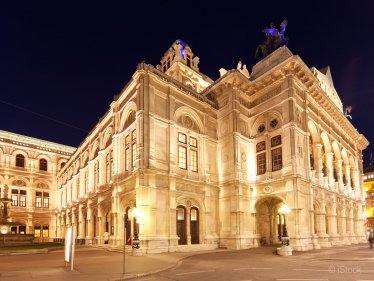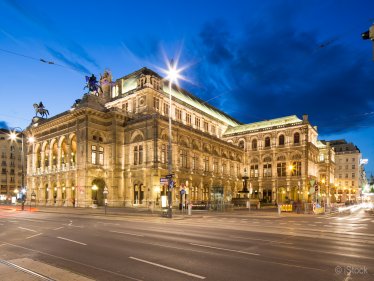Don Giovanni - Schedule, Program & Tickets
Don Giovanni
Text by Lorenzo da Ponte
Cheerful drama in two acts
Musical direction
Antonello Manacorda
Staging
Barrie Kosky
Stage & Costumes
Katrin Lea Tag
Light
Franck Evin
Don Giovanni
Kyle Ketelsen
Komtur
Ain Anger
Donna Anna
Eleonora Buratto
Don Ottavio
Dmitry Korchak
Donna Elvira
Kate Lindsey
Leporello
Philippe Sly
Zerlina
Isabel Signoret
Masetto
Martin Häßler
Contents
Don Juan is a figure of border crossing: the border between genders, the border between classes and the border between life and death, because he does not stop at cemetery walls. He is said to have already loved 2065 women, 1003 in Spain alone, 640 in Italy, 231 in Germany and 100 in France. But he did not only poach in the Christian Occident: 91 in Turkey (his servant keeps a detailed account of this). He has been active in European literature since the Counter-Reformation, when around 1620 a Spanish monk recorded his legend in the comedy The Mocker of Seville and the Stone Guest. He quickly penetrated the game templates of the Italian commedia dell'arte as well as the classic French comedy. It was in Prague that Mozart and da Ponte gave it its most influential form: it was there that their opera Don Giovanni or The Punished Libertine premiered in 1787. The simultaneity of elements of farce, comic and tragic opera, of low and high style, symphony and sacred music leads into new territory that crosses borders, right through to the rhythmic cacophony of the first act finale, in which three dance bands play simultaneously, and to passages in which the chromaticism is pushed into twelve-tone structures. Giovanni is on the move between all these languages, he has no music of his own, since he makes himself the projection screen for the women he desires: Donna Anna, brought up under strict paternal care, who seeks adventure in him; the runaway Donna Elvira hoping for emotional stability; of the lower-class girl Zerlina, who dreams of social advancement in his arms. The labyrinthine sequence of scenes in the opera is compounded by Giovanni's murder of Donna Anna's father and the return of the dead man as a "stone guest". In the Catholic Comedia, when Giovanni felt his end was near, he begged in vain to be allowed to confess. In the opera it is the stone guest who wants to save the rebel from eternal damnation by imploring him to repent after all – which he refuses. Despite the fall into hell, it remains questionable who is the loser in this duel, because Giovanni's intellectual defiance is unbroken. With this new production, the Vienna State Opera is launching a Mozart-Da Ponte cycle under the direction of its musical director Philippe Jordan and directed by Barrie Kosky.
Subject to change.
Cheerful drama in two acts
Musical direction
Antonello Manacorda
Staging
Barrie Kosky
Stage & Costumes
Katrin Lea Tag
Light
Franck Evin
Don Giovanni
Kyle Ketelsen
Komtur
Ain Anger
Donna Anna
Eleonora Buratto
Don Ottavio
Dmitry Korchak
Donna Elvira
Kate Lindsey
Leporello
Philippe Sly
Zerlina
Isabel Signoret
Masetto
Martin Häßler
Contents
Don Juan is a figure of border crossing: the border between genders, the border between classes and the border between life and death, because he does not stop at cemetery walls. He is said to have already loved 2065 women, 1003 in Spain alone, 640 in Italy, 231 in Germany and 100 in France. But he did not only poach in the Christian Occident: 91 in Turkey (his servant keeps a detailed account of this). He has been active in European literature since the Counter-Reformation, when around 1620 a Spanish monk recorded his legend in the comedy The Mocker of Seville and the Stone Guest. He quickly penetrated the game templates of the Italian commedia dell'arte as well as the classic French comedy. It was in Prague that Mozart and da Ponte gave it its most influential form: it was there that their opera Don Giovanni or The Punished Libertine premiered in 1787. The simultaneity of elements of farce, comic and tragic opera, of low and high style, symphony and sacred music leads into new territory that crosses borders, right through to the rhythmic cacophony of the first act finale, in which three dance bands play simultaneously, and to passages in which the chromaticism is pushed into twelve-tone structures. Giovanni is on the move between all these languages, he has no music of his own, since he makes himself the projection screen for the women he desires: Donna Anna, brought up under strict paternal care, who seeks adventure in him; the runaway Donna Elvira hoping for emotional stability; of the lower-class girl Zerlina, who dreams of social advancement in his arms. The labyrinthine sequence of scenes in the opera is compounded by Giovanni's murder of Donna Anna's father and the return of the dead man as a "stone guest". In the Catholic Comedia, when Giovanni felt his end was near, he begged in vain to be allowed to confess. In the opera it is the stone guest who wants to save the rebel from eternal damnation by imploring him to repent after all – which he refuses. Despite the fall into hell, it remains questionable who is the loser in this duel, because Giovanni's intellectual defiance is unbroken. With this new production, the Vienna State Opera is launching a Mozart-Da Ponte cycle under the direction of its musical director Philippe Jordan and directed by Barrie Kosky.
Subject to change.
There are no products matching the selection.



